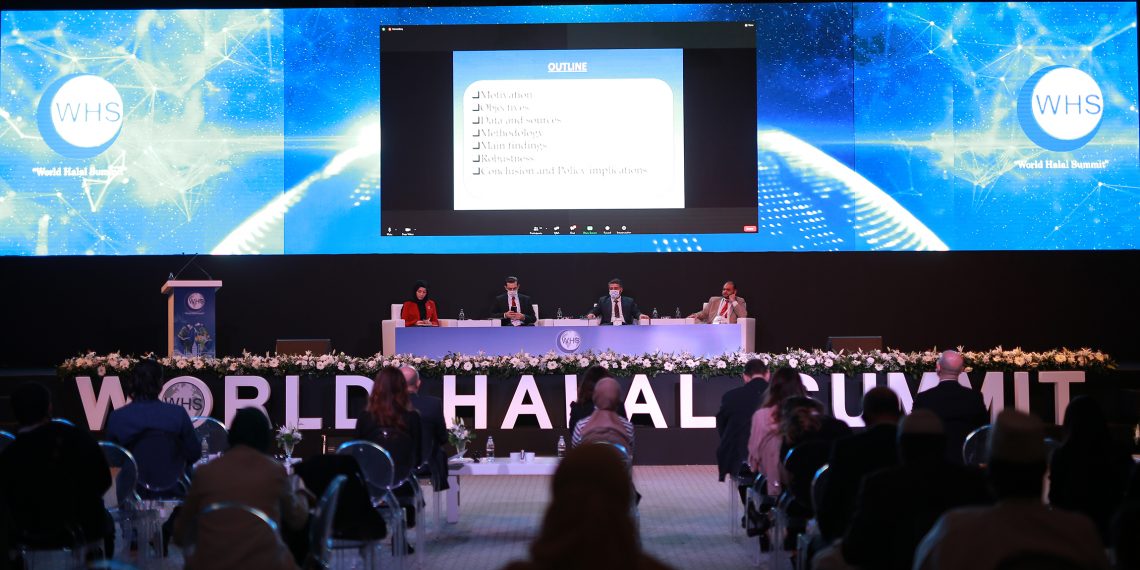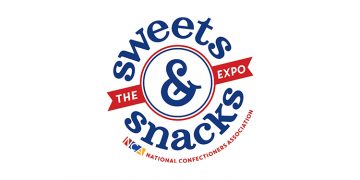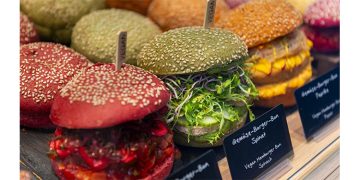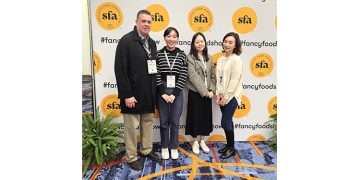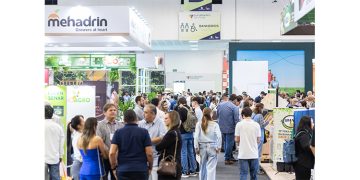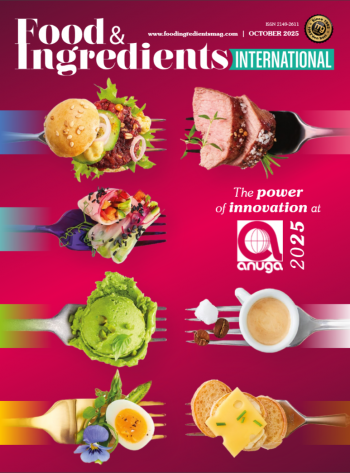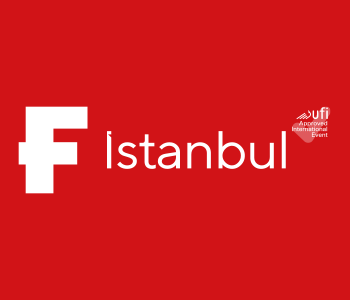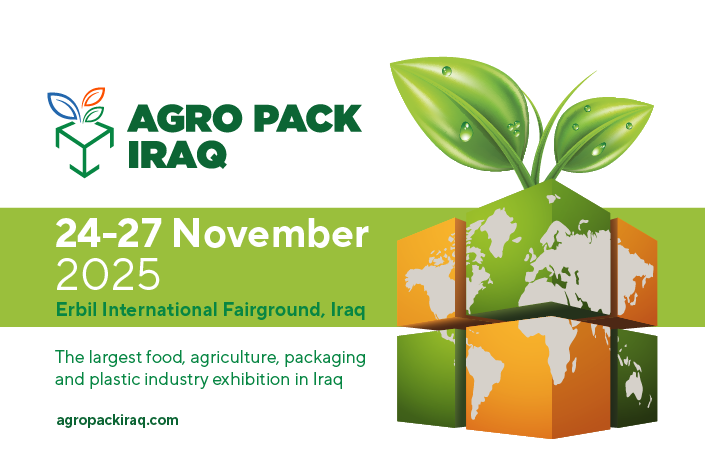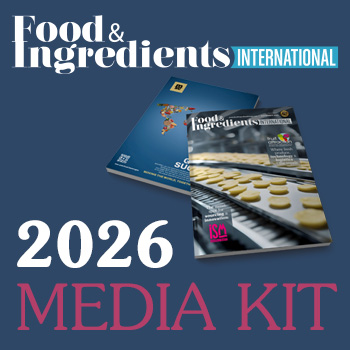
Mr. İlhami Aktürk, Deputy Secretary General of TSE, shared his insights with the topic of ‘’The Importance of Halal Certification’’ in his speech under the “Halal Market And Halal Quality Infrastructure’’ session and said ‘’The term of Halal certification also includes conformity assessment and SMIIC Standards are considered as Halal standards and adopted by the TSE and Turkey. In Germany, we encounter an article stating that ‘80 percent of trade is affected by technical regulations and standards’. Therefore, technical regulations and standards have great importance for trade. For example, you carry on a trade on apples but there are hundred different type of apples in the sector. At this point, we need to make a definition that everyone understands the same apple and refers to it. There must be a defined document here, which can be a technical contract regulation or a consensus-based document that defines that apple That’s what we call as a standard!’’
‘’The competency of the personnel that are active in the field of Halal related activities is highly important”
Mr. Çağrı Cankurtaran, Food Engineer delivered his speech about the New OIC/SMIIC Standards related Conformity Assessment under the OIC/SMIIC Standards on Conformity Assessment Session on behalf of the SMIIC. Cankurtaran said ‘’We have experts from member countries that we set standards in SMIIC. SMIIC CCA Committee on Standards for Conformity Assessment (CCA) includes testing, inspection, evaluation, examination, auditing, assessment, declaration, certification, accreditation, peer assessment, verification and validation processes. Most of the market in the halal sector focused on the certification issue. However, testing, auditing, certification and calibration has also important functions. We are preparing new standards on certification and calibration. We are developing the SMIIC standards on every stage from manufacturers to service providers. If we talk about the halal, human resources that is the competency of the individuals are highly important. Here, Halal auditor, assessor, Halal experts, Islamic affairs experts, slaughter man etc. are the main groups. Standards regarding the competence, impartiality and independency of the laboratories also stand out. When it comes to halal, new test methods and other issues also come to the fore. Professional studies of laboratories also encourage certification bodies to ask more tests for the halal report. The main objective of the SMIIC is to develop standards. We have also a new proposal which is about halal inspection. We have established a working group on this subject and this group will come into action soon. It will be in line with ISO/IEC 17020 Standard. We anticipate that we will be able to develop the standard within the one and half year.”
“There are more than 7,000 chemicals added to our food only for flavouring”
One of other speakers of the 6th World Halal Summit, Dr. Mohammed Ali Alsheikh Wace delivered his speech on OIC/SMIIC 24:2020 Standard: General Requirement for Food Additives and Other Added Chemicals to Halal Food. Dr. Mohammed talked about the latest published standard by SMIIC that is OIC/SMIIC 24:2020 and documents on chemicals added to halal food. He said “Anyone trying to make food in home will disappointed when they compare their product with the market product. For example, when you compare the home-made peanut butter with factory made peanut butter, you will notice differences. They differ from each other in terms of quality and one spoils faster than the other. Food additives give the same quality as made at home; sometimes even has a better presentation of what you buy from the market.
It also extends the expiry date. Beside the food additives we have many other added chemicals to our foods. We cannot remove them from the industry. They have both advantages and disadvantages. Since we can produce food in this way, we can serve them to a lot of human beings, but at this point, we question the halal status and safety of the product. Another question is SMIIC 1; Why there are different standards for food additives and animal feed? When a standard is general, a new standard is needed to be specified, explained, restricted or give details. We want to produce in every technical detail in one SMIIC standard. However, we have a main rule in establishing new standards do not contradict with OIC/SMIIC 1! Thousands of additives are added to our food. There are more than 7,000 chemicals are added to our foods only for flavourings. Food additives is around six hundred chemicals. Let’s take a milk factory as an example. Adding vitamin D in the milk is compulsory according the regulations set by Turkish government with the aim of that children will have enough vitamin D in their food as well as emulsifier. This makes us question the halalness and safety of the product. There are around six hundred functional classes of food additives are mentioned in the codex such as acids, acidity regulators, colours, emulsifiers, glazing agents, sweeteners etc. SMIIC follows the e-numbers in the European Union and we give the halal status for the non-halal and doubtful materials in these food additives.”


